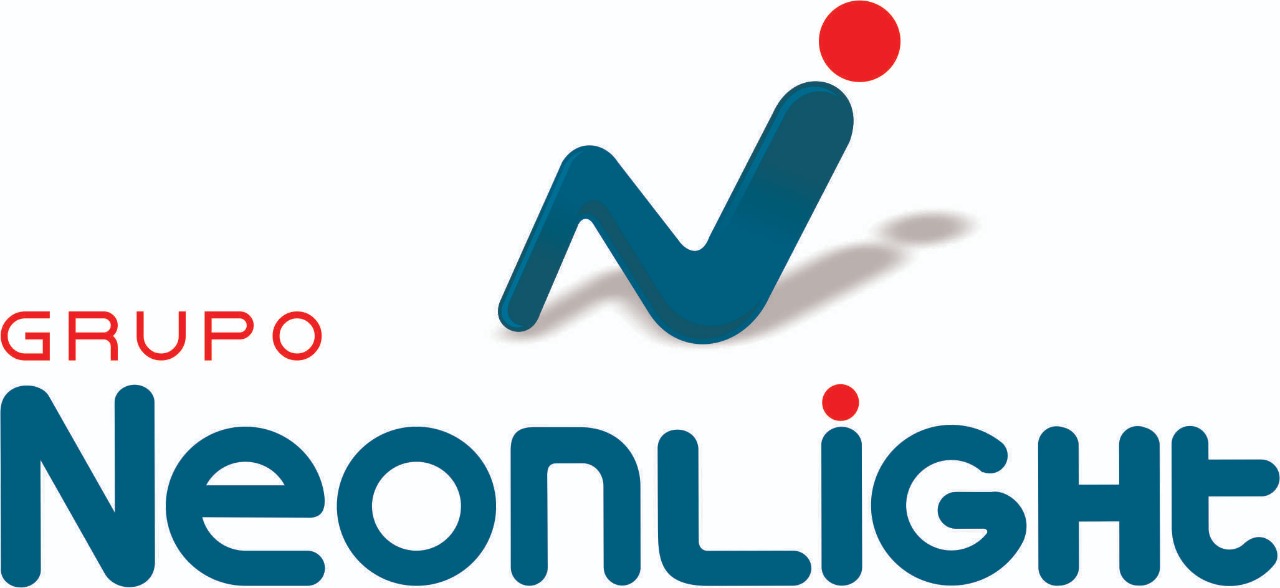Content
- Cartoonist Elizabeth Montague Makes History At The new Yorker
- Influence On Other Dialects
- Steps For Culture Translation
- Statistics For African American Vernacular English
- So Much Modern Slang Is Aave Heres How Language Appropriation Erases The Influence Of Black Culture
- Mercy In An Age Of Cancel Culture?

White hip-hop artists such as Eyedea can choose to accentuate their whiteness by hyper-articulating postvocalic r sounds (i.e. the retroflex approximant). In US courts, an interpreter is only routinely available for speakers of “a language other than English”. Rickford & King argue that a lack What Is Aave of familiarity with AAVE on the part of jurors, stenographers, and others can lead to misunderstandings in court. They especially focus on the Trayvon Martin case and how the testimony of Rachel Jeantel was perceived as incomprehensible and not credible by the jury due to her dialect.
According to such a view, West Africans learnt English on plantations in the southern Coastal States (Georgia, South Carolina, etc.) from a very small number of native speakers . Some suggest that this led to the development of a rudimentary pidgin which was later expanded through a process of creolization. There is no easy answer to the question of whether using AAVE words or LGBT slang is ethical. The line between organic language fusion and cultural appropriation is thin and barbed with institutionalized oppression. The only advice I can give is to tread carefully, and when people say you’ve stepped over that line, listen to them — and step back. Across the pond, the Harlem Renaissance was kicking off, and with it came the origins of modern drag culture.
Cartoonist Elizabeth Montague Makes History At The new Yorker
Black people speak a range of languages and dialects, and the sooner we can embrace them all, the closer we’ll be to liberation. This “slang”, as some would call it, appeals to pop culture the same way other Black trends do — box braids, Y2K, hip-hop, etc. Even though the dreaded affiliation to cultural appropriation plagues a lot of us, small TikTok creators like Aisha Williams are growing increasingly weary of the adoption.
- Despite the 1996 Oakland Unified School District resolution, many people still only consider AAVE a dialect and not a standalone language.
- Although for a long period of time it was believed people who spoke this form of English were simply incapable of comprehending and learning normal English, or what we call Standard American English .
- Mainstream linguistics has long agreed with this view about dialects.
- Michael Che, the writer of the sketch who is African-American, said in a since-deleted Instagram post that he was unaware of what AAVE was and meant no disrespect to those who thought the sketch was offensive.
- The Independent Florida Alligator has been independent of the university since 1971, your donation today could help #SaveStudentNewsrooms.
- Asking the LGBTQ community or any other community that has begun to use AAVE words and phrases that have become mainstream to stop using these words wouldn’t be realistically possible because of the sheer number of people in those communities.
- The inclusion of these words is a step toward acceptance of African American Vernacular English as a legitimate dialect.
Her excitement was palpable as she realized her song had already become available to people on Spotify; from there, she spoke about myriad topics, including her new music video and even dirty makeup brushes. But for some viewers, it wasn’t what she was saying that attracted their attention so much as how she was saying it. This is something you need to examine past saying a couple words every couple of months. Why you use aave, who you use it around, the way you speak about it etc. This list was intended to educate people on the words they consider “gen z” or “stan” language and where they actually come from.
Influence On Other Dialects
Black English is also known as African American Vernacular English , among other names, as discussed in the extensive historical usage note at its entry. This form of English is as complex, of course, as standard American English and has many of its own distinct features. American BLACK ENGLISH was born of slavery between the late 16c and mid-19c, and followed black migration from the southern states to racially isolated ghettos throughout the US. L. Dillard , some 80% of black Americans speak the vernacular, and he and several other commentators stress its African origins. The pidginization and creolization that resulted from slavery linger on the tongues of Americans of African descent. Slave labour in the South gave birth to diverse linguistic norms; former indentured servants from all parts of the British Isles, who often became overseers on plantations, variously influenced the foundations of AAVE. See GULLAH. First the industrial revolution then the Civil War disrupted slavery and promoted African-American migration within the US, as a result of which slave dialects were transplanted from Southern plantations to the factories of the North and Midwest.
They could have thought Labov, a white man, didn’t understand the AAVE dialect, and then switched to SAE for emphasis. If you say it’s a language, though, you likely hold the Creolist Hypothesis view, that AAVE originated from a creole spoken on Southern plantations before the Civil War.
But what a lot of millennial and Gen Z began to realize was that the notion of speaking proper English was an antiblack sentiment that stretched as far back as our ancestors living on plantations. Once the veil of ignroance is lifted, the beauty and complex structure of AAVE can be explored. Instead of being a couple of funny words, it blossoms into a language full of rules, structure, and hidden meanings. Names like City Girls, or even the classic reference, “Boo Boo The Fool”, hold larger meanings that are tied into colloquial terms only other Black communities would understand. Deeper than just ownership, these phrases, as Felisha Bernard, an Atlantean poet and rapper points out, are the blueprint. Like other creators, Bernard grew up deep in the Hip-Hop culture in a time where rap groups like Three 6 Mafia and OutKast, were rising in the early 2000s Hip-Hop scene.
Steps For Culture Translation
Yet, it wasn’t until recently that these terms passed into common use. Not everyone in the LGBT community feels comfortable with this — and not just because the terms are rooted in underground movements. In fact, many studies done from the 1970’s to the present have classified AAVE as a dialect of English or its own language resulting from a combination of English words and Niger-Congo rooted grammar. There’s no intellectual way to combat the comment “why do Blacks think they own everything” without feeling a rush of anger to defend the misunderstood dialect Black people still struggle to accept themselves. Instead, people can push crediting Black phrases and allowing black creators to flourish as entertainers outside of being profitable, meme-worthy, soundbite pawns to the same pop culture that regurgitates Black trends.

But when media outlets — including BuzzFeed — and individuals who discuss memes and popular culture reproduce instances of Black American cultural appropriation, they lend them more credibility. “On fleek,” “AF” (“as fuck”), “savage,” “shade,” “sip/spill the tea,” and “woke” are all examples of AAVE that have crept into wider public vernacular upon being championed by non-Black people. Doing so would help put concepts in their proper context and make it more difficult for culture vultures to appropriate with impunity. Much of our everyday language has roots in various subcultures. With the rise of social media, the lines between “subculture” and “mainstream” are starting to blur further. As just one example, drag slang and AAVE words are absorbed into mainstream slang with an almost clockwork-like consistency.
Statistics For African American Vernacular English
But does this terminology belong to the communities who created it? What’s the boundary between the natural evolution of language and cultural appropriation? The answer is difficult to define — but let’s spill that tea. Long before White influencers could overuse words like, “fleek” and “periodt”, Black people were forced to form an identity inside of White America. Even after years of confronting the racist system, most Black people today are very familar with conforming, or code-switching, when needed. Coined by W.E.B Dubois, Black people wear “two-faces” — their “true” face they can show easily to their loved ones, and the more “acceptable” face in White spaces.
Why more people are saying ‘y’all’ – BBC News
Why more people are saying ‘y’all’.
Posted: Fri, 19 Nov 2021 08:00:00 GMT [source]
The voiced sound, within a word, may be pronounced v. So ‘brother’ becomes bruvah, etc. In West African languages and Caribbean creoles a word meaning ‘bad’ is often used to mean ‘good’ or ‘alot/intense’. For instance, in Guyanese Creole mi laik am bad, yu noo means ‘I like him alot’. Dalby mentions Mandingo a nyinata jaw-ke ‘She’s very pretty.’ (literally ‘She is beautiful bad.’); cf. A discussion of AAVE vocabulary might proceed by noting that words can be seen to be composed of a form and a meaning. In some cases both the form and the meaning are taken from West African sources. In other case the form is from English but the meaning appears to be derived from West African sources.
So Much Modern Slang Is Aave Heres How Language Appropriation Erases The Influence Of Black Culture
Scholars like Toni Morrison, writer and winner of the Nobel Prize in literature, have spoken of five present tenses in AAVE. In reality it’s probably more than that, if you factor in stress. See our list of the many present-tense variations below (many also feature the mighty-fine be copula or linking verb). All tenses mean something slightly different, and some can’t be translated into SAE so easily.
— ༎ຶ‿༎ຶ (@arretmystere) December 6, 2021
I greeted them, and one of them made sure to call me their “sis” before they went to look around. Now that I’ve given you a bit of history behind AAVE, let’s dive into how offensive it is to have a dialect created by my community used as a relatable trait. It always disappoints me to see how this country neglects the accomplishments of Black people by taking the community’s work and making it their own. The appropriation of AAVE has been so normalized that many of us haven’t even noticed it.
Mercy In An Age Of Cancel Culture?
Dr. William Labov, creolist, sociolinguist, and professor at University of Pennsylvania, has spent his career studying linguistic change, starting with AAVE. It began in Manhattan, in a 1962 study that had him lurking through department stores across town, anonymously scribbling salespeople’s answers to his questions once he was out of their view.

But Black people will never forget the dialect they created. NPR article, one of the main reasons people code switch seems to be in an effort to fit in. Now, before you tell me that you don’t mean to do it, code switching can be both a conscious and unconscious act. Unfortunately, many non-Black people of color and white people think speaking in a blaccent is necessary for our comprehension. It is also commonly linked to the violence in Black communities.
Tiktok Language: Whats Up With The Misuse Of Aave?
So if you’re white, and you have a clipped regional accent, should you really substitute “that” for dat? I’ve definitely had more than one conversation with someone engaging in verbal blackface. On social media recently the phrase AAVE has been cropping up increasingly often – in TikTok comments sections, in fiery Twitter threads – and it all seems to revolve around the words that people are using in their day to day vocabulary. More often than not, the use of these words will lead to impassioned debates on what kind of language we can and can’t use online, and who has the right to use language based upon what heritage they have. The attempts to take away our differing speech have only served to make us bilingual.
- The historical evidence confirms a combination of African, English, Scots, and Irish influences that have evolved through complex processes of pidginization and creolization.
- For example, reduction is more likely to occur in west side than in west end.
- Appear loudly with a target positioned on your back.” The war of Black identity creates two worlds where being Black and worthy seem to interject.
- For users of AAVE, how often did you have an educator who told you that the way you speak is perfectly fine?
- Some black non-Americans speak it (eg. Drake, who speaks it professionally, and is Canadian).
- Refer to each style’s convention regarding the best way to format page numbers and retrieval dates.
In many cases, the postulated etymologies are not recognized by linguists or the Oxford English Dictionary, such as to dig, jazz, tote, and bad-mouth, a calque from Mandinka. However, there is still evidence of AAVE speakers picking up the cot-caught merger in Pittsburgh, Pennsylvania; Charleston, South Carolina; and among younger speakers. African-American Vernacular English may be considered a dialect, ethnolect or sociolect. While it is clear that there is a strong historical relationship between AAVE and earlier Southern U.S. dialects, the origins of AAVE are still a matter of debate. Certain grammatical features seem to be universally used in AAVE, however there is regional variation in pronunciation. In celebration of the impending release of her first single, “Drivers License,” in January, Olivia Rodrigo held an Instagram Live party.

If you call AAVE a dialect, you many support the Anglicist Hypothesis that enslaved African people on Southern plantations acquired English from their British owners. This hypothesis was the widely held opinion of how AAVE evolved until the 1960s. Interestingly, defining AAVE as either a dialect of English, or a separate language altogether, depends on how you believe it began. Most online reference entries and articles do not have page numbers.
I don’t need to be overly verbose just for the sake of being overly verbose. Just shut the fuck up and let me say “lit” when I’m smoking weed. All languages are appropriations of each other because we all come from the same place. Excuse you Mohammad because last time i checked you are not black and you have no right to talk about AAVE so go take your disrespectful, uneducated butt out of this comment section. People should be allowed to speak in whatever dialect they know or grew up with.
Author: Tomi Kilgore

